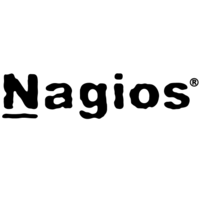-
→
 Bridge
Bridge
We use Nagios to monitor customer instances of Bridge and proactively alert us about issues like queue sizes, downed services, errors in logs, etc.
-
-
→
 Bridge
Bridge
We use Clojure in several places, most often as a wrapper around other libraries and frameworks (e.g. Hibernate, HAPI, etc.) Our HL7 parsing workflow is heavily based on Clojure with files that look almost like configuration, but actually offer tremendous power and flexibility.
-
-
→
 Bridge
Bridge
We use Ruby on Rails for all our web applications. Additionally, we leverage Ruby for some ETL processes and service scripts.
-
→
 Bridge
Bridge
Our web applications use JavaScript extensively to provide rich, interactive data visualization and include real-time data (from RabbitMQ via cometd).
-
→
 Bridge
Bridge
We use Python in our ETL processes, custom reporting, and as glue to manage service and deployment scripts.
-
→
 Bridge
Bridge
Hipchat provides a comprehensive and searchable chat system for development and customer relations. It is integrated with GitHub and JIRA so our developers can have specific rooms for each project, and we also have rooms for each customer tied into their Twitter feeds so we know what is relevant and can track issues via Nagios alerts.
-
→
 Bridge
Bridge
We use github to host all our software, as well as customer-specific configuration and deployment.
-
→
 Bridge
Bridge
Streak provides integrates CRM directly into Gmail so we can stay current with our customers, partners, and leads.
-
→
 Bridge
Bridge
We use Dropbox for document sharing, both for bizdev (contracts, leads, marketing, etc.) as well as operations (project management, documentation, customer specifications, etc.)
-
→
 Bridge
Bridge
PostgreSQL is our data store for both core clinical data, internal status and log data, as well as application-specific schemas for user-generated data.
-
→
 Bridge
Bridge
We use a Clojure-powered wrapper around Hibernate to provide an ORM access to our data store for applications, as well as offering SSO integration and HIPAA logging functionality.
-
→
 Bridge
Bridge
RabbitMQ is the enterprise message bus for our platform, providing infrastructure for managing our ETL queues, real-time event notifications for applications, and audit logging.
-
→
 Bridge
Bridge
J2EE application server to handle JDBC connection pooling, shared SDK, JDNI resources, etc. and host our JVM-based web applications (primarily Rails via JRuby).
-
→
 Bridge
Bridge
OpenAM provides SSO integration with AD, LDAP, SAML, etc. to allow customers to leverage their existing directory service for authenticating users in our platform web applications.
-
→
 Bridge
Bridge
Our web application server and SDK are all Java-based to give us access to a broad range of languages for web app development (e.g. Python via Jython, Ruby via JRuby, etc.)
-
-
-




















